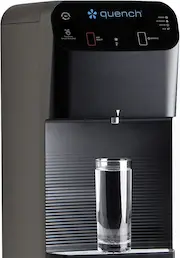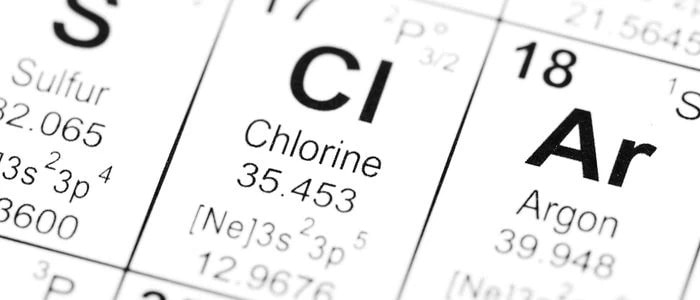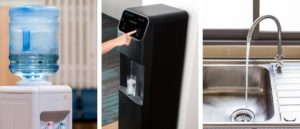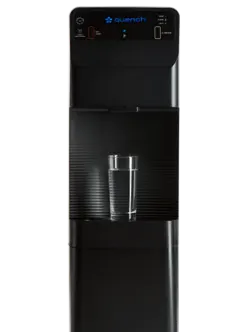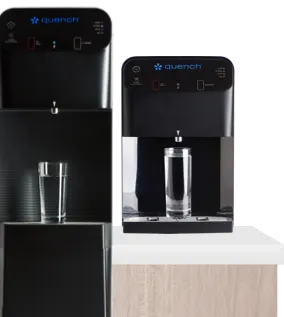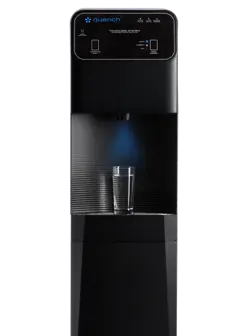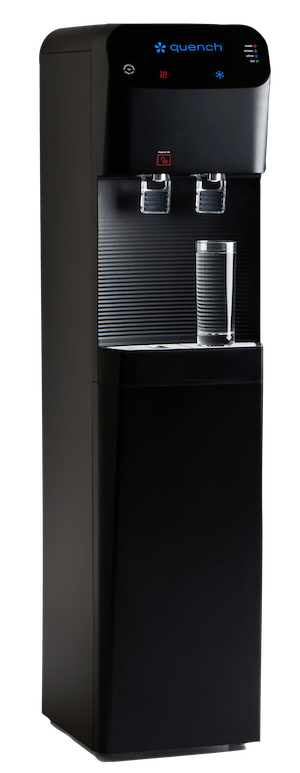If the smell of your tap water gives you flashbacks to summers spent by the pool, there are likely high levels of chlorine in your drinking water. Treatment plants throughout the U.S. use chlorine to neutralize bacteria, parasites, viruses, and harmful microorganisms before drinking water is distributed to households. Even though chlorine is a common additive, it’s important to identify the reasons why your water is emitting a noticeable odor so that you can fix the issue and get back to enjoying crisp, scentless water again. This scent can sometimes also be recognized as a bleach smell.
Quick Facts
- If your tap water has a chlorine smell, it’s likely because municipal water plants use chlorine to eradicate waterborne germs like E. coli and the norovirus.
- The Environmental Protection Agency (EPA) requires treatment facilities to maintain chlorine levels no greater than 4 mg/L — as these are safe levels for human consumption.
- The strength of the chlorine scent will usually depend on the distance of the public water source from your household. However, the smell can also be affected by the temperature of the water, because colder water can hold onto chlorine for longer.
- Over time, chlorinated water will naturally lose its smell, but if you prefer to get rid of the odor immediately, consider a water filtration system with advanced technology like reverse osmosis (RO) or carbon filtration.
What Causes the Smell?
The EPA mandates that a certain level of chlorine be present in public water supplies, which is known as a “residual.” If the residual exceeds 1 mg/L, a discernible smell will be present.
There may be several reasons why a water supply source has a chlorine residual higher than 1 mg/L. For instance, heavy chlorination is required for water supplies that are transported over extended distances to compensate for dissipation during the journey. The effect the long distance has on transported water is even worse during warm weather, thus treatment facilities often raise chlorine levels accordingly throughout the year.
How Did Chlorine Get Into My Water?
The smell of chlorine in tap water may seem concerning, but its presence is often a necessary evil in water treatment. Generally, you can assume this distinct smell stems from the treatment process itself, where chlorine is intentionally introduced to ensure water safety. However, chlorine can get into your water sources a few different ways, including:
- Household cleaning products containing chlorine bleach, might accidentally contaminate water sources through runoff or improper disposal.
- Industries using chlorine-based chemicals in their processes, potentially releasing them into waterways and contaminating the water supply.
- Nearby swimming pools treated with chlorine, sometimes leading to water contamination through seepage or runoff into groundwater sources.
- Certain geological formations may contain chlorine compounds that dissolve into groundwater.
Understanding why your water has a chlorine smell is crucial for ensuring you’re implementing the correct measures to maintain its safety for drinking — thereby safeguarding your long-term health.
Is Chlorinated Water Dangerous?
Chlorine is a common additive that’s become an essential component of water treatment. So, while a chlorine smell can certainly be unpleasant, it’s generally safe for consumption at the levels typically found in drinking water supplies. The Centers for Disease Control and Prevention reports that exposure to levels below 4 mg/L does not pose a risk to human health.
At the same time, excessive exposure to chlorine can have adverse health effects. This makes it important to monitor chlorine levels and maintain proper water treatment practices to minimize potential health concerns.
Symptoms of Ingesting Too Much Chlorine
If too much chlorine can be harmful, how can you determine if your water exceeds recommended levels? Let’s dive into the key symptoms that indicate excess chlorine in your drinking water:
- Eye irritation: You may experience redness, itching, or burning sensations in the eyes after consuming water with high chlorine levels.
- Respiratory distress: Individuals can feel shortness of breath, coughing, or wheezing — especially those with pre-existing respiratory conditions like asthma.
- Gastrointestinal discomfort: Too much chlorine can lead to stomach cramps, nausea, vomiting, or diarrhea.
- Headaches and dizziness: Drinking chlorinated water may cause headaches, dizziness, or lightheadedness.
- Fatigue and weakness: You may feel unusually tired, lethargic, or weak despite adequate rest due to chlorine exposure.
What Should You Do?
Fortunately, it’s relatively easy to eliminate the chlorine smell in your water, and potentially excessive levels, with a few solutions:
- Time: Let your water breathe by allowing it to sit in an open container for several hours. This gives the chlorine molecules a chance to naturally dissipate, reducing any chlorine odor. Keep in mind this method works best for small quantities of water.
- Boiling water: Boil your drinking water to not only remove chlorine but also minimize its smell — ensuring fresher-tasting water.
- Carbon filtration: Opt for activated carbon filters for a more immediate resolution to tackle the chlorine smell in your water. These filters use activated carbon to absorb chlorine molecules and their odors, resulting in cleaner and more pleasant-tasting water.
- RO filtration: RO systems use a semipermeable membrane to effectively filter out chlorine molecules and other impurities, leaving you with clean water that’s free from unwanted odors.
Improving Your Drinking Water
Although chlorine helps to keep our water free of bacteria, over 316 contaminants have been detected in water reservoirs across the U.S. As such, it’s vital to get your water tested or find alternatives to tap water if you suspect your water quality threatens your health or has an off-putting taste or aroma.
Our mission at Quench is to deliver fresh, clean drinking water to households and workplaces alike. Using RO and carbon filtration — in addition to UV sanitization — Quench water coolers filter out or deactivate harmful levels of bacteria found in regular water. Take a look at our product line or get a free estimate for a water cooler with built-in advanced filtration technology.
